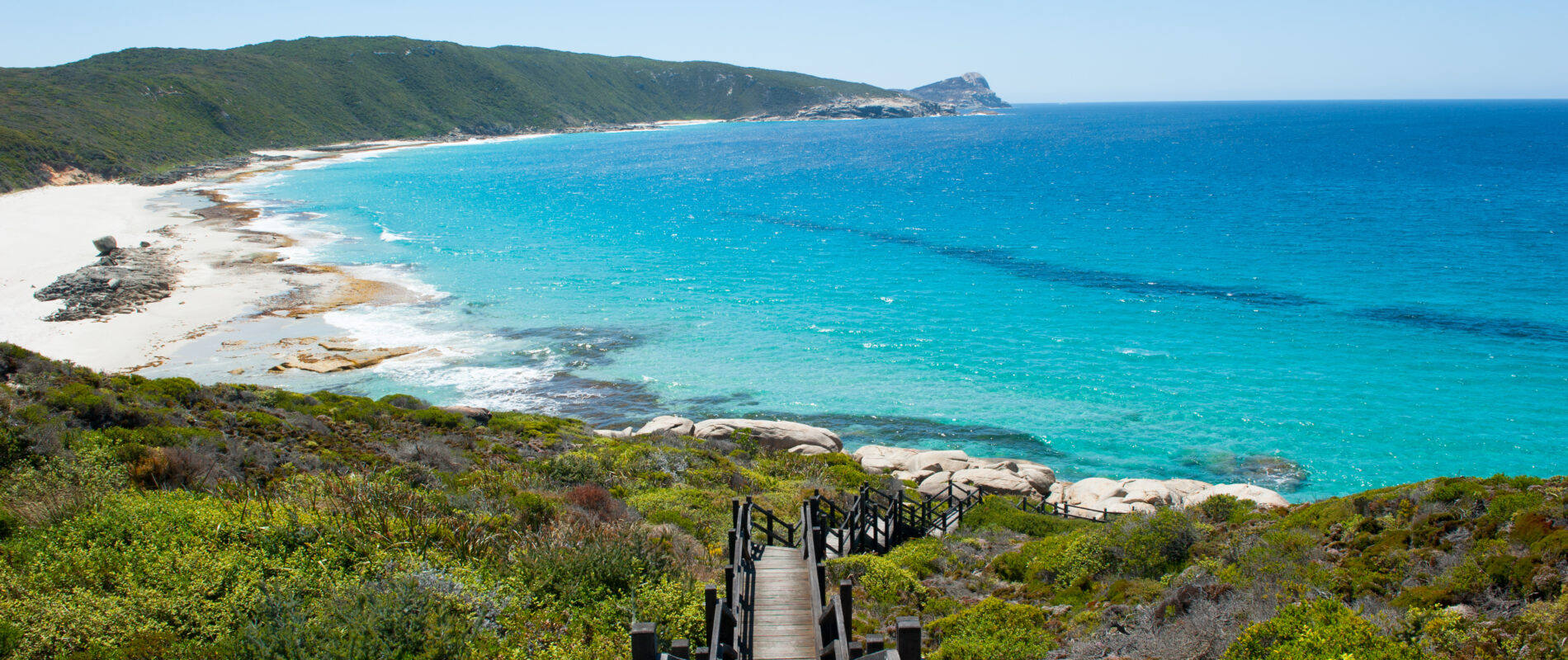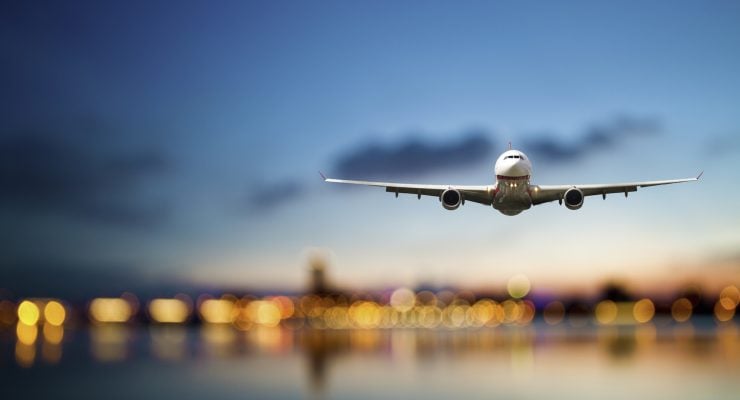New Zealand and Australia are essential destinations for WHV-makers. And while many travellers often hesitate between these two countries, some choose to avoid this dilemma by exploring both. After all, since you’re already on the other side of the world, why not take the opportunity to discover the riches of these two amazing countries?
Although New Zealand and Australia have certain similarities, they also have many differences. In this article, I share with you my first impressions of Australia, after having spent 5 years in New Zealand.
No matter where you go, Globe WHV is there for you! Discover Globe WHV travel insurance offered by our exclusive partner ACS, Travel & Expatriate Insurance Solutions.
1. The WHV application
Let’s start at the beginning: the WHV application. The process and criteria are quite similar for both countries. However, the main difference (and it’s a big one) is that the visa processing times are much longer for the Australian WHV. This is the reason why we always recommand you to wait until you get your visa to book your flights! In our case, we were rather lucky, but the majority of WHV-makers wait weeks, even months, before receiving their visa.
2. The first administrative steps
My opinion of the steps upon landing in the two countries is a little ambivalent. Some things aremuch simpler in Australia, like opening a bank account which doesn’t require a proof of address, unlike New Zealand. However there are much more admin work in Australia and since step A needs step B which in turn needs step C, it takes a bit more time to get everything done. In New Zealand, you can be done with it all within a week, whereas it can take up to 6 weeks in Australia depending on what you have / choose to do.
Here is a brief summary of the paperwork to be done in both countries.
Australia |
New Zealand |
| Phone number (immediate) |
Phone number (immediate) |
| Bank account (takes 10 days to receive the card by post) |
Bank account (you get the eftpos card immediately, then 10 days to receive the card by post)) |
| TFN number
(takes 3 weeks to receive the number by post)
|
IRD number (takes 3 days to receive by mail) |
| Student number (USI) (immediate) |
|
| Superannuation (requires the TFN number, immediate) |
|
| Western Australia driving licence (requires the TFN number, takes 1 month to receive by post) |
|
| Police clearance, required to apply for some jobs (requires the driving licence, takes about 2 weeks to receive) |
|
| Medicare (requires a bank account, for some countries only, 1 week)
|
|
| Tickets / training to work (requires the USI, from 1 hour to a few weeks) |
|
3. Housing
As you can imagine, the administrative formalities on arrival can be time-consuming. That’s why my partner and I opted for a room in a shared house for our first month in Australia. We were surprised to find that the rent was €1,700 for a room in a shared apartment for six people. We knew that rents were higher, but we’re nowhere near the €850 we used to pay in New Zealand. Fortunately, we were able to negotiate the rent for the following month directly with the landlord. But even so, it seems very difficult to find a room for less than €1,200 a month for a couple!
In addition to the rents, we noticed other differences between Australia and New Zealand. Here in Australia, the houses seem to be designed for shared living, with multiple ensuite bedrooms or a high bathroom to bedroom ratio. However, I also notice a lot of advertisements for accommodation with very specific criteria (women only, no couple, this nationality only, that job only), which not only seems a little discriminatory, but can also make finding accommodation a little more complicated.
Finally, there are many Australian employers, particularly in remote areas, who offer their employees accommodation, which is rather rare in New Zealand.
4. Work and wages
And since we’re talking about work,there are once again many differences between Australia and New Zealand here. Firstly, Australia relies on a “short-training” system (as I call it). To be able to work in Australia, there is a 9 out of 10 chance that you will at least have to pass get your White Card or your RSA. The White Card is mandatory to work within the construction industry and the RSA is required to work in all sectors where alcohol is present (bars, restaurants, hotels). Obviously, these courses come at a cost, which can vary between fifty dollars and several thousand dollars. These training do not exist in New Zealand, where you can simply start working in many fields without any experience. Each system has its advantages and disadvantages. In Australia, You can work in skilled manual occupations if you obtain the necessary ‘tickets’, while some jobs are inaccessible to WHV-makers in New Zealand. On the other hand, the cost of tickets can quickly escalate if you don’t know exactly what you want to do. So it’s important to think carefully before committing yourself to a specific course. You also have to admit that the Australian system is rather dubious, given that, for basic training (such as the White Card and the RSA), you are literally given the answers.
Another difference between New Zealand and Australia is the competition and the time it takes to find a job. In New Zealand, you can easily find a job within days (or within a few weeks for the unlucky ones), if you have a can-do attitude, are persistent, and flexible. In Australia, the competition is fiercer, especially in the cities, and it’s not unusual to see advertisements with more than 800 candidates! Once again, it seems that proactivity and flexibility are important assets. However, the hiring process seems to take longer than in New Zealand, where you may be asked on Thursday to start on Friday morning. The job search also seems to be easier outside cities, but for this, you usually need a vehicle.
In relation to work, pay also differs in the 2 countries. While it is rare to find a job with a pay higher than NZD 25/ h (14 euros) in New Zealand, in Australia wages are rarely under AUD 28 / h (17,25 euros)! This difference can be felt very quickly, especially if you live in a van or if your employer offers you accommodation (as is often the case outside the cities).
5. Food and groceries
Coming from the neighbouring country, let’s just say that I don’t feel very out of place in Australian supermarkets. However, I did notice a few differences that pleasantly surprised me: the price and the nutritional value of the products!
Regarding the price, I’d say groceries en Australie are on average 25 % cheaper than in New Zealand which is pretty cool.
Then, regarding the nutritional quality of the food, I noticed that there was less fat and sugar in Australian products. This surprised me greatly, given New Zealand’s reputation. However, New Zealanders do love their sweets and high-fat diet and this is reflected in every detail.
Finally, although New Zealand is proud of its chocolate (especially Whittaker’s), I find Australian chocolate much better! It’s not as good as our Belgian chocolate, but it’s more than good enough (for the moment anyway). But shhh, don’t tell my Kiwi friends, they might be angry with me.
6. Plastic and cleanliness
Here again, I was surprised to find some differences. Sometimes I think that having lived in New Zealand for so long was like living in a bubble, and I forget that things can be very different elsewhere. In Australia, I was surprised to see so much trash in the streets, especially compared with New Zealand, which is a very clean country. I was also surprised to find plastic bags for vegetables in supermarkets, whereas in New Zealand they are made of paper.
7. Street harassment
A slightly less pleasant subject, but one that illustrates the idea of having lived in a bubble for 5 years. In all the years I spent in New Zealand, I’ve never been whistled at, cat-called or inappropriately accosted in the street. I remember that when I returned to Belgium for the first time, it was a huge shock, because I had almost forgotten the insecurity that street harassment can cause. So it was with great surprise, sadness and disgust that I realised that Australia was not quite like its neighbour. In just two weeks, this has already happened to me three times. Although this average is still well below that of Belgium, I’m particularly saddened by it.
8. Vehicles
Although I haven’t looked at the vehicle market yet, I have noticed a few differences. Firstly where vans are kings in New Zealand, it seems like in Australia rooftents are the go-to. Secondly, Australia doesn’t seem to have any regulations concerning self-contained vehicles or not, as is the case in New Zealand. Finally, it would appear that vehicles are more expensive in Australia than in New Zealand.
9. The weather
Unsurprisingly, the weather is very different in the two countries. Here in Western Australia, it’s hot and dry, with a little wind and above all… a lot of sunshine. In other words, my definition of the perfect weather. In New Zealand, true to its reputation, you can have 4 seasons in a day which can be tiring at times: you never know what to wear and you always have to have a jumper, rain cape, cap (your whole rucksack, in fact) with you when you set off for the day. The sun is also much more aggressive in New Zealand than it is in Australia despite the heat.
10. Birds
A small specific point, but one that deserves its place on my list of differences. New Zealand is the land of birds. The country is a birdwatcher’s delight, with many endemic species. Some are funny (like keas), others intriguing (like pukekos) and still others are simply adorable, like fantails! In Australia, birds are rather scary. Between the hyper-territorial magpies that attack passers-by, the white Australian ibises that roam like vultures and the crows that scream their heads off, it’s enough to make you wonder whether these animals might have a little problem.
11. The locals’ friendliness
One thing’s for sure, whether you’re in New Zealand or Australia, you’ll notice that the locals are very friendly, welcoming and happy to offer their help if needed. I have noticed, however, that the Australians seem a little more direct than their New Zealand friends, who avoid confrontation at all costs. Personally, I appreciate this frankness, but it may confuse some people.
12. The backpacker community
When it comes to the backpacker community, however, Australia and New Zealand are very different.
New Zealand is a bit like the world of Care Bears. You’ll receive help here and there to help you make progress with your WHV. Whether it’s travel advice, tips on finding work or accommodation, the community of WHV-makers is very tied and supportive !
In Australia, I was very shocked to see WHV-makers selling contacts on farms / in mines or other work contacts in help groups. It’s true that the competition is tougher than in New Zealand, but I was shocked by the approach, especially as it goes against my values…
As travellers, we all share the same experiences: those moments of intense wonder, those moments of discomfort that shake us up, and those unforeseen setbacks that punctuate our journeys. I always say that I got to where I am today thanks to the help and advice of 1,001 people. That’s why, for me, it goes without saying to return the favour to other travellers. However, I can’t help noticing that, unfortunately, some people prefer to exploit the vulnerability of others to take advantage of it. And I think that’s a shame.
So let’s change this trend and be caring and supportive too!












 Français
Français English
English



0 comments
{{like.username}}
Loading...
Load more